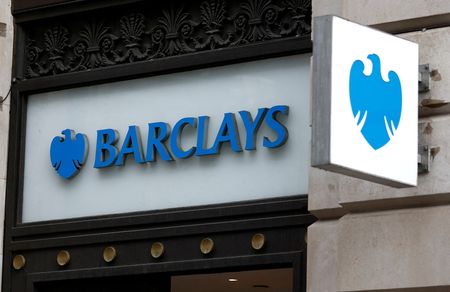By Aditya Soni and Deborah Mary Sophia
(Reuters) -Big Tech is spending more than ever on artificial intelligence – but the returns are rising too, and investors are buying in.
AI played a bigger role in driving demand across internet search, digital advertising and cloud computing in the April-June quarter, powering revenue growth at technology giants Microsoft, Meta, Amazon and Alphabet.
Betting that momentum will sustain, Microsoft, Alphabet and Amazon are ramping up spending to ease capacity shortages that have limited their ability to meet soaring AI services demand, even after several quarters of multi-billion-dollar outlays.
The results offer the clearest sign yet that AI is emerging as a primary growth engine, although the monetization journey is still in its early days, investors and analysts said.
The upbeat commentary underscores how surging demand for the new technology is shielding the tech giants from tariff-driven economic uncertainty hobbling other sectors.
“As companies like Alphabet and Meta race to deliver on the promise of AI, capital expenditures are shockingly high and will remain elevated for the foreseeable future,” said Debra Aho Williamson, founder and chief analyst at Sonata Insights.
But if their core businesses remain strong, “it will buy them more time with investors and provide confidence that the billions being spent on infrastructure, talent and other tech-related expenses will be worthwhile,” she added.
Microsoft shares rose 4% on Thursday, with the Windows maker crossing $4 trillion in market value – a milestone only chip giant Nvidia had reached before it.
Meta was up even more, rising 11.3% adding around $200 billion to its market value of about $1.75 trillion. Amazon slipped 7% after-market, after rising 1.7% in regular trading, on disappointing cloud computing results.
All the companies have faced intense scrutiny from investors over their ballooning capital expenditures, which were expected to total $330 billion this year before the latest earnings.
And until a few days ago, the Magnificent Seven stocks were also trailing the S&P 500 in year-to-date performance.
SILENCING DOUBTS
Microsoft said on Wednesday it would spend a record $30 billion in the current quarter, after better-than-expected sales and an above-estimate forecast for its Azure cloud computing business showcased the growing returns on its massive AI bets.
The prediction puts Microsoft on track to potentially outspend its rivals over the next year. It came after Google-parent Alphabet beat revenue expectations and raised its spending forecast by $10 billion to $85 billion for the year.
Microsoft also disclosed for the first time the dollar figure for Azure sales and the number of users for its Copilot AI tools, whose adoption has long been a concern for investors.
It said Azure generated more than $75 billion in sales in its last fiscal year, while Copilot tools had over 100 million users. Overall, around 800 million customers use AI tools peppered across Microsoft’s sprawling software empire.
“It’s the kind of result that quickly silences any doubts about cloud or AI demand,” said Josh Gilbert, market analyst at eToro. “Microsoft is more than justifying its spending.”
Amazon, for its part, said it expected second-half spending roughly at the same clip as its second-quarter total of $31.4 billion, suggesting it would spend around $118 billion for the full year. Analysts had projected about $100 billion.
Other AI companies have also attracted a clutch of users.
Alphabet said last week its Gemini AI assistant app has more than 450 million monthly active users. OpenAI’s ChatGPT, the application credited with kicking off the generative AI frenzy, has around 500 million weekly active users.
Meta, meanwhile, raised the bottom end of its annual capital expenditure forecast by $2 billion, to a range of between $66 billion and $72 billion. It also said that costs driven by its efforts to catch up in Silicon Valley’s intensifying AI race would push 2026 expense growth rate above 2025’s pace.
Better-than-expected sales growth in the April-June period and an above-estimate revenue forecast for the current quarter, however, assured investors that strength in the social media giant’s core advertising business can support the massive outlays.
“The big boys are back,” said Brian Mulberry, portfolio manager at Zacks Investment Management, which holds shares in all three major U.S. cloud providers. “This simply proves the Magnificent Seven is still magnificent at this moment in time.”
(Reporting by Aditya Soni and Deborah Sophia in Bengaluru, Echo Wang in New York, Greg Bensinger in San Francisco; Editing by Muralikumar Anantharaman)











